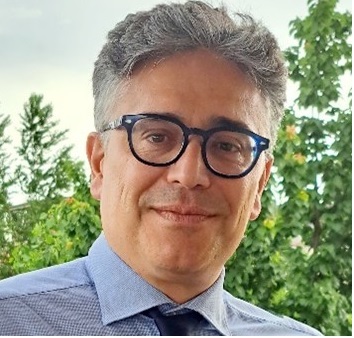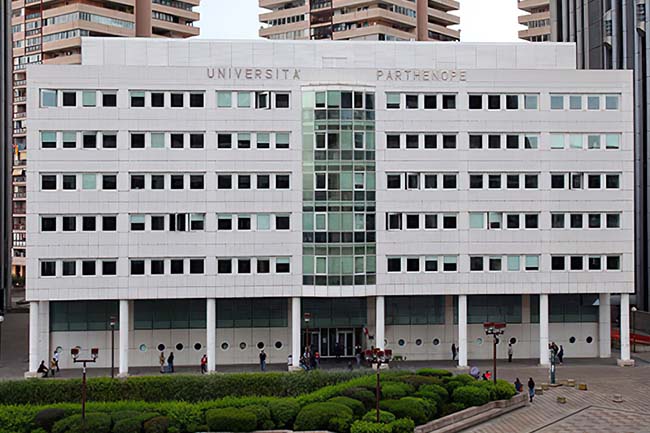Università degli Studi di Napoli Parthenope
Sede Centrale – Via Amm. Acton, 38
80133 Napoli
- Home
- Dottorati di Ricerca
- Information and Communication Technology and Engineering
PhD program in
Information and Communication Technology and Engineering
Objective
The Ph.D. course aims to train researchers capable of carrying out high-quality research work in academic and non-academic research institutions as well as in industrial research & development centers in the fields of Engineering: Electronics, Electromagnetics, Telecommunications, Automation, Computer Science, Bioengineering, and Circuit Theory.
The PhD Course
The PhD Course in “Information and Communication Technology and Engineering” is aimed at Italian and foreign Master’s Degree holders (or graduates with equivalent qualifications), strongly motivated to undertake a training and in-depth course in the field of Electronic Engineering, of Automation, Telecommunications, Computer Science, Electromagnetics and Circuit Theory. PhD students will be guided over the three-year period by advisors, and will have the opportunity to spend periods of study at qualified academic and research institutions, including industrial ones, abroad. The goal of the doctoral course is to provide future PhDs with theoretical and practical knowledge to allow them to be the main actors both in academic and industrial contexts, through an increasingly active participation in qualified working groups.
The main purposes of the Doctorate are developing students’ autonomous capacities for study, research, innovation, and management of national and international research projects, so that these skills can be exploited in public and industrial research, and encouraging the emergence of new high-tech startups. More specifically, the training objectives of the course fall within the following areas:
- Nano-electronic, optoelectronic and photonic technologies and devices, for telecommunications, interconnections on chips, sensor networks;
- Physical, chemical, biological sensors, biochips, lab-on-chip, micro and nanosystems for the environment, industrial processes, materials and structures, transportation, space, security, food, biotechnology, medicine;
- Diagnostic techniques and advanced imaging for cultural heritage, security, industrial processes, materials and structures, automotive and aerospace, biomedicine;
- Methods and techniques for the formalization, extraction, and the management of information from large amounts of data (big data);
- Software systems for simulation/emulation of the “human-like reasoning” and neuromorphic problem solving in medical field;
- Techniques for ‘human-machine” interaction in medicine and cultural heritage;
- Methods for processing large volumes of remote sensing data based on distributed computing infrastructures;
- Development of methodologies for modeling and design of control systems for complex systems;
- Advanced techniques for the synthesis of antennas;
- Modelling and optimization of systems and electrical, magnetic and superconductive materials on macro-, micro- and nano-scale;
- Signal processing circuits and non-linear circuits for applications in energetic, biomedical and environmental fields;
- Multi-polarization of scattering models for applications involving remote sensing and electromagnetic diagnostics to microwaves;
- Non-stationary signals with applications to communications, radar sonar and biological systems;
- Application of Artificial Intelligence (AI) techniques to Imaging and ICT;
- Cybersecurity for Critical infrastructures and cloud platforms;
- Development of advanced security systems based on Trusted Execution technologies.
In the framework of the PhD course, it is also possible to obtain the Double Doctoral Degree with Xidian University, Xi.an, China, following a training program approved by the Doctoral College.
Duration: 3 years
Thematic areas: Electronics, Electromagnetics, Telecommunications, Automation, Computer Science, Bioengineering, and Circuit Theory
Additional Information and Quality Assurance
Quality Assurance represents the set of internal processes related to the design, management, and self-assessment of educational and scientific activities. The reports on student opinions are available on the Department of Engineering website in the Quality section.
Professional Opportunities
There are a wide variety of professional career opportunities and occupations. The main employment opportunities are in the sectors of academic research, industrial research, research management, and in international bodies and organizations (national and international space agencies – ASI, ESA, NASA-UN, European Patent Office, EU, Eurocontrol, etc. .. ).

COORDINATOR
Prof. IADICICCO Agostino
agostino.iadicicco@uniparthenope.it
